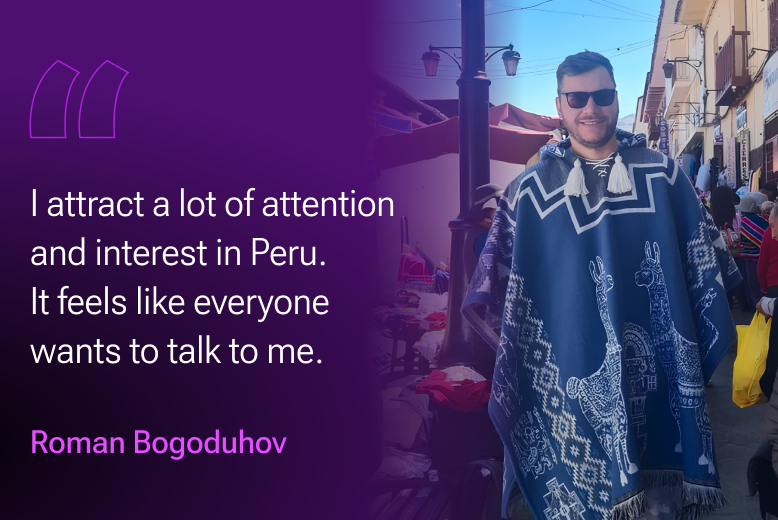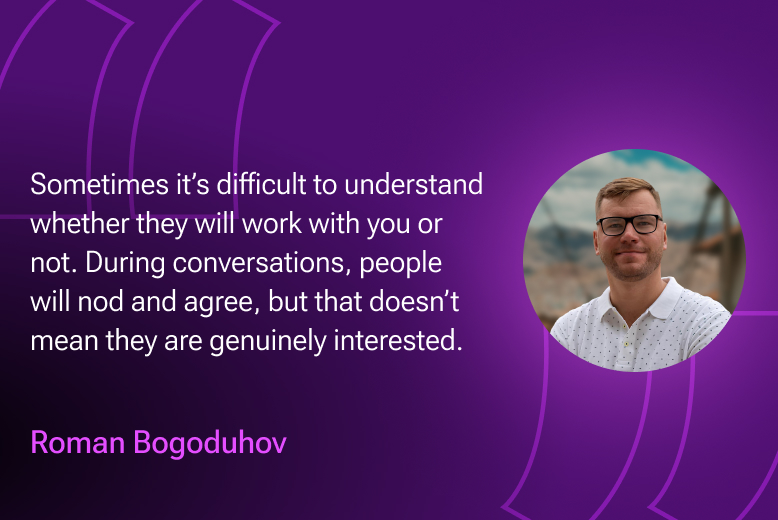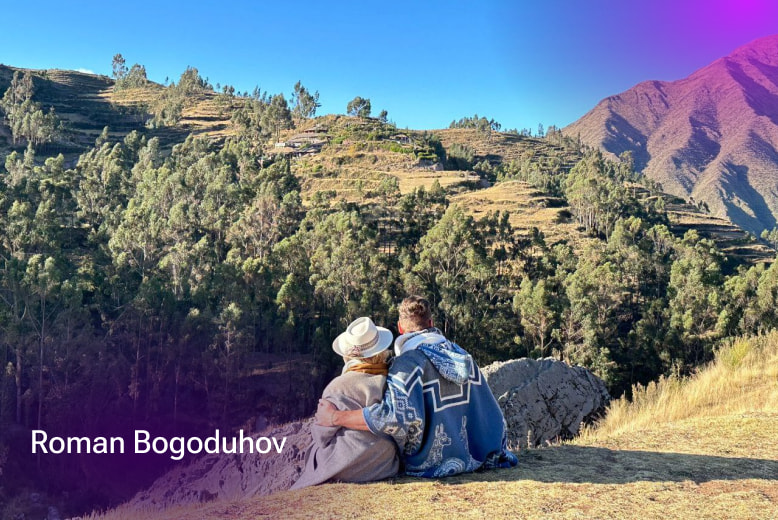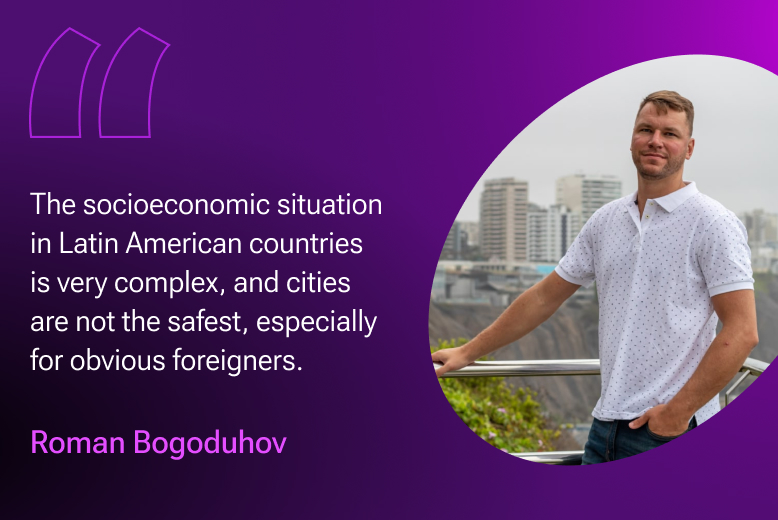Zona de Azar Peru – EvenBet Gaming: Roman Bogoduhov, Life and Work in Peru

 Peru.- August 23, 2024 www.zonadeazar.com Roman Bogoduhov — Head of Account Management LatAm at and Commercial Director of LatPoker.
Peru.- August 23, 2024 www.zonadeazar.com Roman Bogoduhov — Head of Account Management LatAm at and Commercial Director of LatPoker.
With Belarusian roots, he lived and worked in several European countries before moving to South America over two years ago. Now residing in Peru, we asked Roman to share his personal experiences of life in this country and offer some advice to those considering relocating to the region.
People and Everyday Life in Latin America
Did you move directly to Peru, or were you considering other countries as well?
I first arrived in Bogotá, Colombia, where I lived for three months at my colleague Manuel Jiménez’s place. Initially, I planned to stay in Colombia, but visa issues forced me to leave. I had a few options: Peru, Brazil, or Argentina.
Not all countries are accustomed to having friends or colleagues live with them. How is this viewed in Colombia?
In Latin America, it is quite normal. People here are very hospitable. Many homes have a dedicated guest room.
Why did you choose Peru over Argentina and Brazil?
I really liked Lima. Life in Lima is quite calm. It’s a very conservative city compared to Bogotá, for instance. I also enjoyed Peruvian cuisine, which is considered one of the best in the world.
The food culture here is very high-level. Even though most dishes are simple — usually some kind of meat with rice or potatoes — the way they mix things together is uniquely delicious.
In Peru, you also feel somewhat exclusive — people treat you differently from the start. Given the ethnic makeup of Peru, where over 80% of people are either indigenous Quechua or mestizos, I attract a lot of attention and interest. It feels like everyone wants to talk to me. I play tennis, and people often notice me and want to play and beat me. Some might find such attention uncomfortable, but I actually enjoy it. So, I’ve decided to go with the option of immigration to Peru.

What Peruvian dish would you recommend?
I would recommend ceviche. It’s probably the most popular Peruvian dish, made from fresh fish with a citrus sauce. It’s very tasty.
What did you find most unusual about daily life?
The first thing that surprised me about daily life was the shower. Some people have traditional water heaters, but more commonly, people use cheaper small inline water heaters. I found this strange and somewhat unsafe, as it’s electric. One time after playing tennis, I was shocked while taking a shower. It wasn’t a strong shock, and I’m fine, but it was quite a sensation.
Business and Work Relations
Let’s talk about the work life of an expat in Peru. What surprised you the most when you moved to Latin America?
I was surprised by the positivity of people and the fact that they never say “no.” They are always willing to talk, listen, and offer something. My first impression of the exhibition was that everyone was very interested in what I was offering. But this is actually misleading, as it’s a cultural trait. People will talk and listen attentively even if they have no real interest.
Sometimes it’s difficult to understand whether they will work with you or not. During conversations, people will nod and agree, but that doesn’t mean they are genuinely interested.
Therefore, after the first conversation with potential partners, I usually try to schedule a follow-up meeting immediately. This way, you can gauge their real intent based on their reaction. Typically, if they are interested, they agree to a specific timeframe and actions. If not, they might say, “Let’s touch base later in the week” or something similar.

Do cultural differences significantly affect work processes?
In LatAm, people seem to always be positive and relaxed, unlike many Europeans who are often busy and worried. This simplicity and positivity are very pleasant and make communication easier. However, there’s a downside: it’s challenging to plan work.
People always say “yes” and don’t like to refuse. If you ask someone to complete a task by a certain deadline, a Latin American will never say they can’t meet it. If the deadline passes and the task isn’t completed, it’s treated as “well, it happens, it’s not a tragedy.” It’s understood that if the work isn’t done, there are reasons. So, when planning, you should always include a few extra days to account for such situations.
What do you do if you need to accelerate progress on a task?
The key to success in this matter lies in personal relationships with the person. If you have genuinely befriended them and have a friendly relationship, the work will get done faster. Also, constant reminders are necessary. If you don’t remind them, the task will likely be forgotten.
Cultural Peculiarities of Latin Americans
How is the assimilation process going for you? Do you have many friends among the locals?
I feel that I’m managing quite well in getting along with the locals. After all, my girlfriend is Peruvian. However, in general, I don’t interact much with local residents. Most of my interactions with local people are with the tennis community and poker players. As I mentioned in my recent article about online gambling in Latin America, COVID-19 was quite harmful to the online poker industry in Peru. However, there is still a poker community in Peru that is being developed by enthusiasts.
I mainly socialise with people from the industry who have also come here from Europe. The reason for this is more about me than about Peruvians — they are quite friendly and hospitable.

There is still a cultural barrier, though. Take typical conversation topics, for example. Locals mostly like to talk about food and sports, particularly football. By the way, in Spain, where I lived for a while, people also love football, but the passion in Latin America is much more intense.
I enjoy sports and good food, but I find it much more interesting to discuss global events, international affairs, and other serious topics. Older generations often have extensive knowledge and can discuss politics interestingly, but the younger generation is rarely interested in such topics.
Do cultural differences affect your relationship with your girlfriend?
Yes, they do. Initially, there was a bit of a language barrier. My Spanish has improved significantly over the two years, and I almost don’t feel it now, but sometimes it’s still difficult to have deep conversations.
There is also the aspect I mentioned earlier: the focus on very simple conversation topics. My girlfriend might ask me several times a day how I’m doing or how I feel. This is another cultural feature of Peruvians: asking how you are is almost a mandatory part of the greeting. It’s nice and sweet but a bit unusual.
Another factor is that Christian family values are highly cherished in Peru, which I really like. For instance, I had to meet her parents, which is a significant cultural expectation.
How do your girlfriend’s parents feel about her dating a foreigner from Europe?
There has definitely been no negativity. On the contrary, there is a positive attitude. As I mentioned, people here are hospitable. Plus, foreigners who come here are often well-educated. Higher education in Peru is very expensive, so it automatically grants a different social status. At the very least, if a person is educated, they will have a good job, and their family will be well-provided for.
Questions About Safety
What advice would you give to someone planning immigration to Latin America?
The first piece of advice I would give concerns housing. Initially, it’s best to stay in a hotel or hostel while you search for a permanent place to live. There are many rental advertisements posted on the streets. You can find very good rental offers simply by walking around the neighbourhoods you’re interested in. Plus, this way, you’re more likely to deal directly with the owner. If you search online, you’ll likely have to go through a real estate agency, which is more expensive, complex, and time-consuming. This applies to both Peru and Colombia.
You should also carefully choose the neighbourhood. The socioeconomic situation in Latin American countries is very complex, and cities are not the safest, especially for obvious foreigners. So when choosing a place to live, you should inquire about the crime rate in the area, which isn’t always intuitive. For example, in Europe, we’re used to thinking that the city centre is the best part. But in Latin American cities, the centre is usually one of the most dangerous places.

Have you ever encountered any unpleasant criminal situations?
Fortunately, I’ve avoided such situations. Perhaps it’s because I’m quite large, and few people are eager to challenge me. However, I’ve heard many stories from friends and colleagues. But in good neighbourhoods, such incidents are almost non-existent.
I did have my phone stolen once, but it was mostly due to my own carelessness: I went to a concert and put my phone in my pocket. This gave me experience, and now I keep all valuable items locked up. So, another piece of advice is to get a crossbody bag right away.
For safety reasons, I also recommend using only authorised taxis and specialised services. It’s best not to get into random cars.
I also suggest minimising the use of cash. At least, avoid carrying large amounts.
Is cashless payment common in Peru?
Yes, cashless payment is very common here. Services that allow payments by phone number or QR code for amounts up to $100-150 are widespread. You can use this method almost everywhere: in taxis, at barbers, etc. It’s unusual for Europeans, but you quickly get used to it because it’s very convenient and secure.
So, upon arriving in Latin America, it’s best to open an account with a local bank as soon as possible and set up such payment services
Editó: @_fonta www.zonadeazar.com